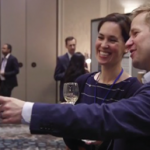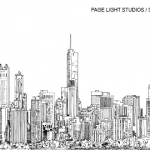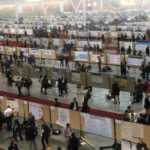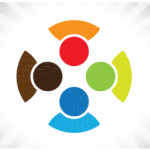“While preparing my Rheumatology Research Workshop abstract in January during a particularly harsh Boston winter, attending a conference in Seattle in June sounded like an especially enticing idea, since Boston winters have been known to sometimes last until early July. My abstract consisted of preliminary data on RA and mortality in the Nurses’ Health Study with my research mentor, Elizabeth Karlson, MD. The timing of the workshop provided the perfect opportunity to present this project and receive feedback from senior investigators prior to preparing my abstract for the ACR Annual Meeting. I was happy to receive notice of acceptance in April, and by the time June came, I was ready to print my poster and head to the refreshing air of the Pacific Northwest.
“In the airport, I ran into multiple faculty members of my division also headed to Seattle on the same flight. I did not realize until that moment that the ACR Rheumatology Research Workshop coincides with the Rheumatology Research Foundation Investigators’ Meeting. Everyone who receives a targeted research grant from the Foundation attends the Investigators’ Meeting. This further provides ample opportunity for eager young investigators to network with established senior investigators and to learn the nuances of successful grantsmanship and career development.
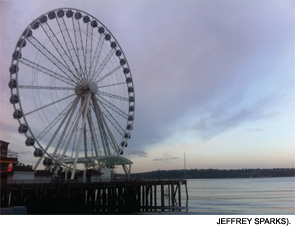
“The most unique and fulfilling part of the workshop from my perspective was the abstract discussion groups. These groups provide an opportunity to give an impromptu chalk talk of your abstract to other workshop attendees, facilitated by two senior investigators. My group consisted of members on the entire spectrum of medical training: medical students, residents, fellows and junior faculty. Sheila Angeles-Han, MD, MSc, of Emory University, and William Rigby, MD, of the Geisel School of Medicine at Dartmouth, moderated my session. While I had previously given poster and oral abstract presentations, I had never before presented an abstract with only a marker and a blank whiteboard behind me. I had always relied on having meticulously prepared tables, figures and slides to hide behind. But that was exactly the point—to concisely communicate the big picture of the background, methods, results and implications of a project so that it is understandable and interesting to a wide audience without relying on these crutches. I was impressed at the proficiency and innovation of all the projects in my group and learned details of abstracts that I never would have noticed from a poster. The abstract group was extremely helpful in improving skills to communicate scientific findings to a wide audience and will certainly change the way I approach talks in the future.
